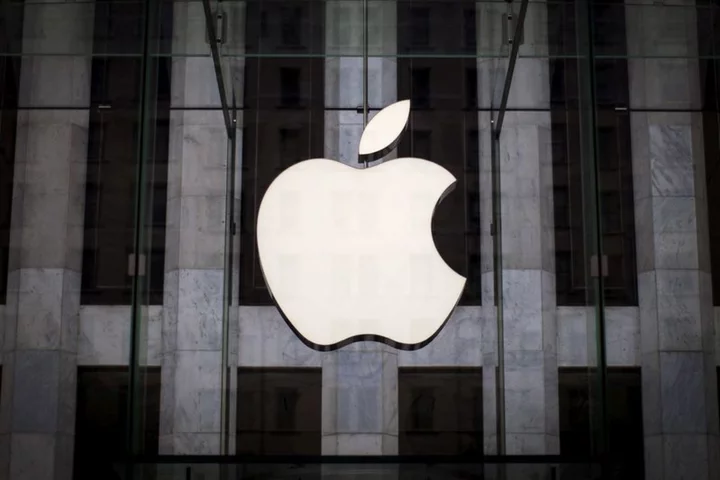
Apple buys AR headset startup Mira - The Verge
(Reuters) -Apple Inc has acquired Mira, a Los Angeles-based AR startup that makes headsets for other companies and the U.S.
2023-06-07 02:54
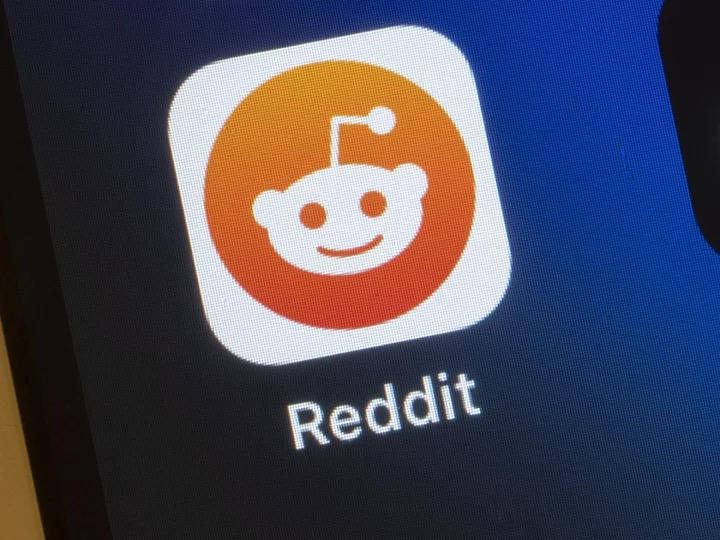
Reddit blackout: More than 1,000 subreddits to go dark in protest to new changes
Thousands of Reddit communities are planning a widespread blackout next week that will impact millions of users. The revolt comes in response to proposed charges for third-party app developers, which they claim will make the social media platform inaccessible for a significant proportion of users. On 12 June, many of the site’s biggest subreddits, including r/videos and r/gaming and r/bestof, will go dark for 48 hours in an effort to prevent the new pricing from coming into force. Reddit launched in 2005, but did not develop its own app until 2016. This meant that for the firs decade third-party apps became a popular way to access the platform, with many still preferred over the official app due to the user experience. These third-party apps need an API – which stands for Application Programming Interface – in oder to access the site’s information so that it can display it in the app for users. “Had a call with Reddit to discuss pricing,” a popular third-party app called Apollo announced in a post to Reddit. “Bad news for third-party apps, their announced pricing is close to Twitter’s pricing, and Apollo would have to pay Reddit $20 million per year to keep running as is.” According to Apollo, Reddit plans to charge $12,000 for 50 million API requests. “I’m deeply disappointed in this price,” Apollo wrote. “For reference, I pay Imgur (a site similar to Reddit in user base and media) $166 for the same 50 million API calls. “I don’t see how this pricing is anything based in reality or remotely reasonable. I hope it goes without saying that I don’t have that kind of money or would even know how to charge it to a credit card.” The Independent has reached out to Reddit for comment. Despite being owned and operated by Advance Publications, Reddit forums are controlled by volunteer administrators, who have organised the protest. One moderator named Toptomcat wrote in a post that the proposed pricing changes would make it “impossible” to keep operating in the way many Reddit users are used to. “Many subreddits will be going dark to protest this policy,” the user wrote. “Some will return after 48 hours: others will go away permanently unless the issue is adequately addressed, since many moderators aren’t able to put in the work they do with the poor tools available through the official app.” Read More Reddit founder says 90% of games will pay you to play them in 5 years Reddit boss calls TikTok 'fundamentally parasitic' for its privacy flaws Elon Musk responds to bizarre AI images of him as baby Apple finally fixed one of the most embarrassing things about typing on an iPhone Apple Vision Pro $3,499 VR headset unveiled at WWDC 2023 heralds ‘new era’
2023-06-07 01:54
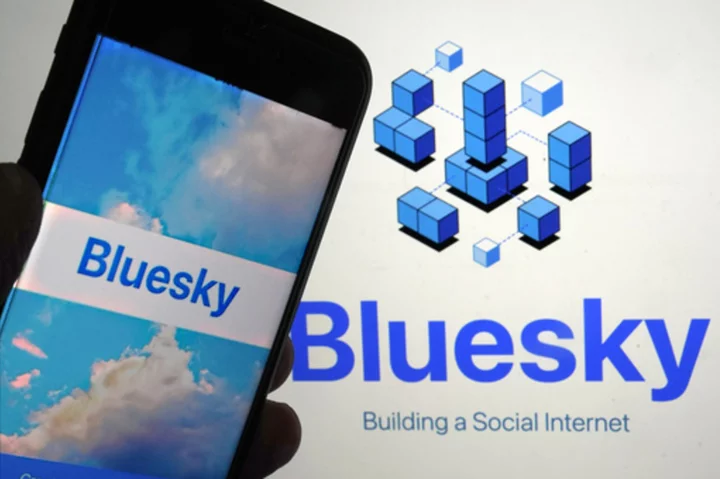
Bluesky, championed by Jack Dorsey, was supposed to be Twitter 2.0. Can it succeed?
Bluesky is the internet’s hottest members-only spot at the moment
2023-06-07 01:50

New Jersey utilities float solar panels on reservoir, powering water treatment plant
Two New Jersey utilities have joined forces on a clean energy project to pump water from a reservoir to 84,000 homes and businesses
2023-06-07 01:16
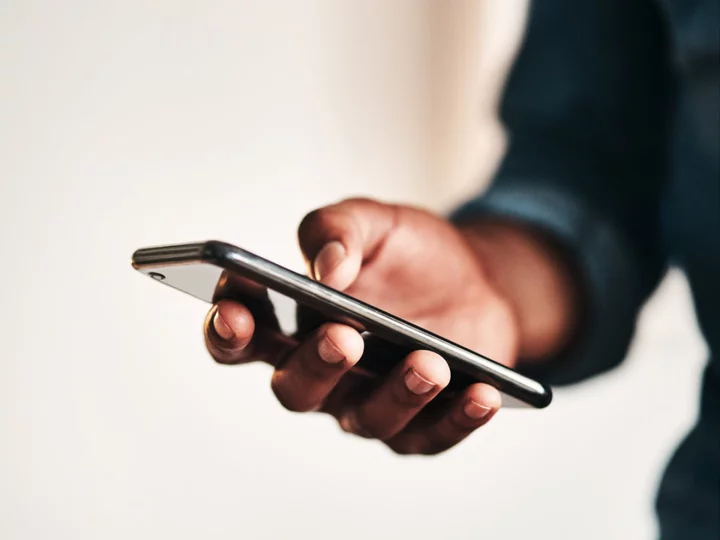
Oh duck: Apple finally improves autocorrect feature to include common swear word
Apple has finally unveiled a new improvement to its autocorrect feature, much to the enjoyment of expletive lovers. On Monday (6 June), the tech company announced a number of software updates will soon be available to iPhone users as part of Apple’s new iOS 17 operating system. While speaking at Apple’s Worldwide Developers Conference in California, senior vice president of software engineering Craig Federighi shared that Apple will also upgrade the autocorrect feature that annoyingly changes one of the most common swear words to “ducking”. “In those moments where you just want to type a ducking word, well, the keyboard will learn it, too,” he said. The upgraded autocorrect feature will be assisted by artificial intelligence (AI). According to TechCrunch, the “Transformer” AI model will accurately predict the next words and phrases iPhone users might send. Over time, the new autocorrect feature will learn to predict words that are used most frequently, including swear words. The autocorrect change is expected to drop alongside Apple’s new iOS 17, which is expected to be available as a public beta in July and a general release to come out in September. Autocorrect has been a longstanding feature of Apple products, automatically substituting corrections for mistakes in spelling or grammar. But the “ducking” substitution has long been a source of annoyance for those who’ve had to rewrite texts, particularly when they may already be wanting to express a degree of frustration. The autocorrect feature wasn’t the only upgrade Apple announced at its WWDC event on Monday. In iOS 17, iPhones will also come with new mental health features, in the form of a journal and mood tracking tools that will integrate with the Health app. The Sensitive Content Warning feature will warn adult users about nude photos and videos with a pop-up asking if they want to see the content, and the new “Check In” lets users tell friends or family members they’ve reached their destination safely. Perhaps the biggest announcement was the company’s new $3,499 (£2,800) Vision Pro headset, which combines virtual reality and augmented reality using its own software – VisionOS. The new virtual reality headset will allow people to see apps projected on top of the room around them, allowing apps to be “freed from the confines of a display”. The headset is made with glass on the front and inside, as well as an aluminium frame and a soft band that wraps around the head. Vision Pro users will be able to sit in their living room, for example, and see their apps projected in front of them, on top of their coffee table, or while doing the dishes. The Apple Vision Pro headset won’t be available to purchase until early 2024. Read More Apple Vision Pro – latest: ‘Revolutionary’ $3,499 VR headset heralds ‘new era’ iOS 17: Apple lets users get iPhone update and other new operating systems early iOS 17 release date and compatibility: When Apple will release new iPhone, iPad and Mac updates – and which will get it Apple lets people get brand new iPhone update early – but there’s a very big warning The price of Apple’s Vision Pro headset is truly out of this world The glaring omission from Apple’s AR headset launch
2023-06-07 01:15
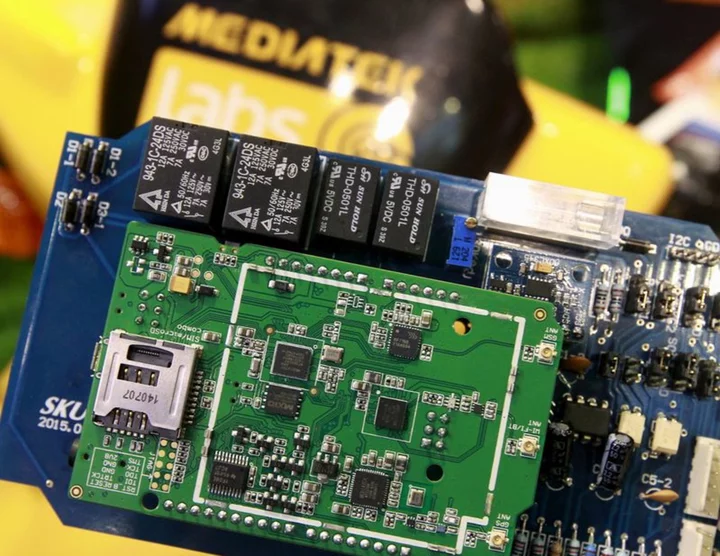
Realtek sues semiconductor rival MediaTek over patent 'bounty' agreement
By Blake Brittain Realtek Semiconductor Corp sued rival Taiwanese chipmaker MediaTek Inc in Northern California federal court on
2023-06-07 00:54
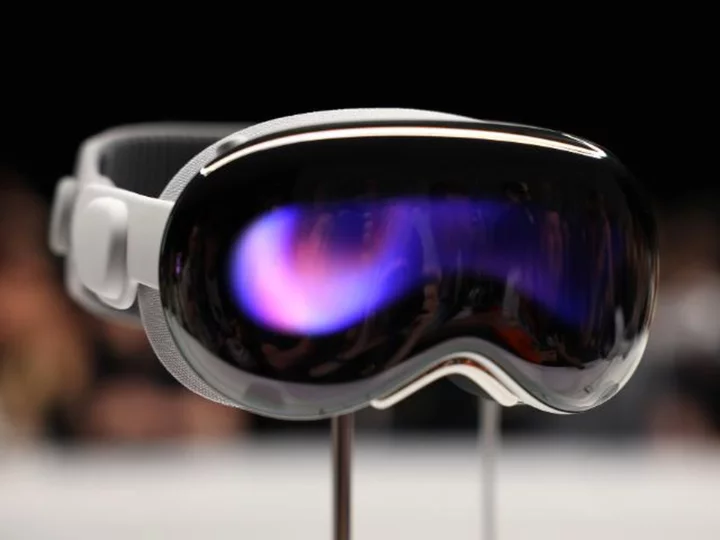
I tried Apple's new headset. Here's what it's like to use
It's rare to find a new technology that feels groundbreaking. But last night, while sitting on a couch in a private demo room at Apple's campus wearing its newly announced Vision Pro mixed reality headset, it felt like I'd seen the future — or at least an early and very pricey prototype of it.
2023-06-07 00:46

Legislation needed to protect data from AI ‘ghostbots’, say researchers
Lack of data protection laws in the UK could see an increasing problem of AI “ghostbots” made from people’s digital footprints, new research from Queen’s University Belfast has suggested. “Ghostbot” is a term used to describe what happens when artificial intelligence is used to create digital reincarnations of the dead. The technology used to create this includes chatbots, deepfakes or holographs that can replicate the voice, face and even personality of a dead person using data from social media. 'Ghostbots' lie at the intersection of many different areas of law, such as privacy and property, and yet there remains a lack of protection for the deceased’s personality, privacy, or dignity after death Dr Marisa McVey, Queen’s University Belfast As the concept of digital reincarnation moves into the mainstream, celebrities are beginning to showcase the capabilities of such technology, for example, a hologram of the late Robert Kardashian created using deepfake technology was gifted to Kim Kardashian by Kanye West in 2020, which used her father’s likeness and spoke in his voice. A research study titled Governing Ghostbots from Queen’s University Belfast, Aston Law School and Newcastle University Law School, has suggested that greater societal awareness of “ghostbots” and a “do not bot me” clause in wills and other contracts could prevent people from being digitally reincarnated without permission. The research looked at potential legal avenues to protect privacy (including post-mortem privacy), property, personal data, and reputation. Dr Marisa McVey from the School of Law at Queen’s University Belfast said there was a lack of protection for people’s privacy or dignity after death. Currently, in the absence of specific legislation in the UK and further afield, it’s unclear who might have the power to bring back our digital persona after we die Dr Marisa McVey, Queen’s University Belfast “’Ghostbots’ lie at the intersection of many different areas of law, such as privacy and property, and yet there remains a lack of protection for the deceased’s personality, privacy, or dignity after death,” she said. “Furthermore, in the UK, privacy and data protection laws do not extend to heirs after death,” she said. “While it is not thought that ‘ghostbots’ could cause physical harm, the likelihood is that they could cause emotional distress and economic harm, particularly impacting upon the deceased’s loved ones and heirs. “Currently, in the absence of specific legislation in the UK and further afield, it’s unclear who might have the power to bring back our digital persona after we die.” In the US and EU there is increasing momentum to legislate on who has ownership over a person’s digital identity, for example the EU AI Act which requires greater transparency for deepfakes and chatbots. In the absence of legislation in the UK, one way to protect our post-mortem selves might be through the drafting of a legally binding ‘do not bot me’ clause that could be inserted into wills and other contracts while people are still alive Dr Marisa McVey, Queen’s University Belfast Dr McVey has suggested that in addition to more formal legislation, an increased understanding of the phenomenon of “ghostbots” could help people to protect their data. “In the absence of legislation in the UK, one way to protect our post-mortem selves might be through the drafting of a legally binding ‘do not bot me’ clause that could be inserted into wills and other contracts while people are still alive,” she said. “This, combined with a global searchable database of such requests, may prove a useful solution to some of the concerns raised by ‘ghostbots’. “We also suggest that in addition to legal protections, greater societal awareness of the phenomenon of ‘ghostbots’, education on digital legacies and cohesive protection across different jurisdictions is crucial to ensure that this does not happen without our permission.” The research was a part of the Leverhulme Trust-funded project Modern Technologies, Privacy Law And The Dead. Read More Charity boss speaks out over ‘traumatic’ encounter with royal aide Ukraine war’s heaviest fight rages in east - follow live Banking app feature allows economic abuse survivors to mute malicious messages Augmented reality headset Vision Pro is ‘most advanced device ever’ – Apple Revealed: The delivery apps charging you double for your food shop
2023-06-07 00:23

Papa Jake survived D-Day on Omaha Beach, now he's a TikTok star
World War II veteran Jake Larson survived D-Day on Omaha Beach
2023-06-06 23:59
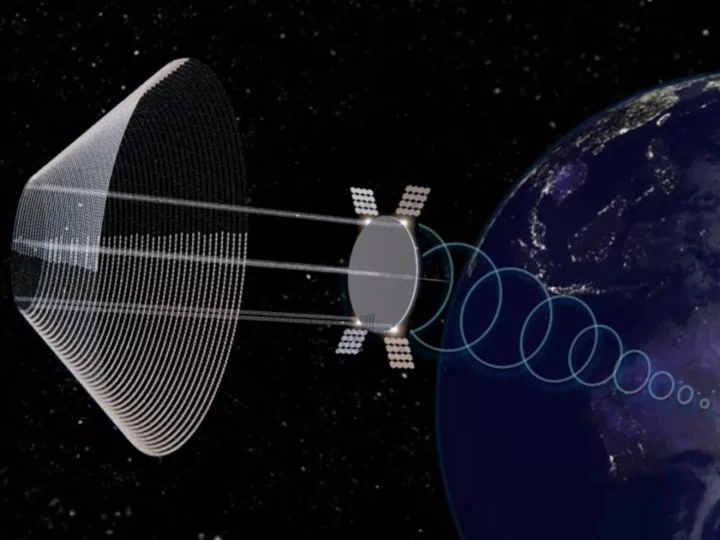
Solar panel breakthrough paves way for ‘utility-scale’ space farms
Scientists have discovered how to double the efficiency of an ultra-lightweight solar cell, which they claim could be used to harvest the Sun’s energy in space at a never-before-seen scale. The next-generation solar panels, built by a team from the University of Pennsylvania, use layers that are over a thousand times thinner than a human hair, yet capable of absorbing a comparable amount of sunlight to commercially available solar cells. The extreme thinness earned them the label two-dimensional, or 2D TMDC, as they are only a few atoms thick. The ability to produce more electricity per weight compared to traditional silicon solar cells makes them highly suitable for sending into space to harvest the Sun’s energy, according to the researchers. “High specific power is actually one of the greatest goals of any space-based light harvesting or energy harvesting technology,” said Deep Jariwala from the University of Pennsylvania. “This is not just important for satellites or space stations, but also if you want real utility-scale solar power in space. The number of [silicon] solar cells you would have to ship up is so large that no space vehicles currently can take those kinds of materials up there in an economically viable way.” By modelling the innovative solar cell computationally, Professor Jariwala and his team were able to come up with a design that has double the efficiency compared to what had previously been demonstrated. A paper detailing the research, titled ‘How good can 2D excitonic solar cells be?’, was published in the scientific journal Device on Tuesday. The researchers now hope to figure out how to achieve large-scale production for the design. “I think people are slowly coming to the realisation that 2D TMDCs are excellent photovoltaic materials, though not for terrestrial applications, but for applications that are mobile, more flexible, like space-based applications,” said Professor Jariwala. “The weight of 2D TMDC solar cells is 100 times less than silicon or gallium arsenide solar cells, so suddenly these cells become a very appealing technology.” The concept of space-based solar arrays was first theorised more than 50 years ago, with scientists noting that the Sun’s energy could be converted into microwaves and beamed down to ground-based receiving stations that convert them into electricity. It has several advantages over terrestrial setups, as they would not be limited by cloud cover or the Sun’s typical cycle. Research has accelerated in recent years following several major breakthroughs and developments with solar energy harvesting and orbital rocket launches, including the emergence of private space companies like SpaceX that have significantly reduced the cost of delivering payloads into space. Last month, Japanese space agency JAXA announced that it was aiming to set up the first satellite transmitters for a commercial-scale solar farm in space by 2025. The European Space Agency is also planning to establish a development program for this untapped renewable energy resource through its Solaris programme. Read More Japan aims to beam solar power from space by 2025 Electric car drives for 100 hours non-stop on futuristic road Scientists smash world record for solar power window material Apple don’t want you to buy a headset - they’re selling a vision of the future Apple lets people get brand new iPhone update early – but there’s a very big warning
2023-06-06 23:50
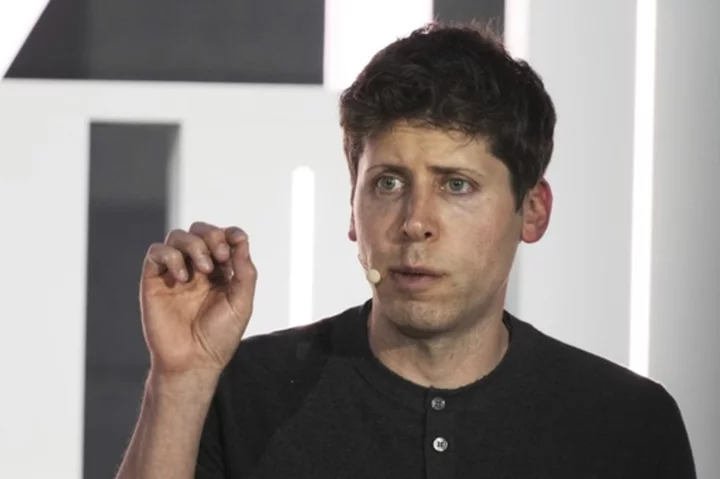
OpenAI CEO suggests international agency like UN's nuclear watchdog could oversee AI
A key innovator is warning that artificial intelligence poses an “existential risk” to humanity
2023-06-06 23:26

CEO of Germany's Merck: decoupling from China would be at huge economic cost
By Ludwig Burger and Patricia Weiss FRANKFURT (Reuters) -The CEO of German technology group Merck KGaA said that unravelling trade
2023-06-06 23:20
